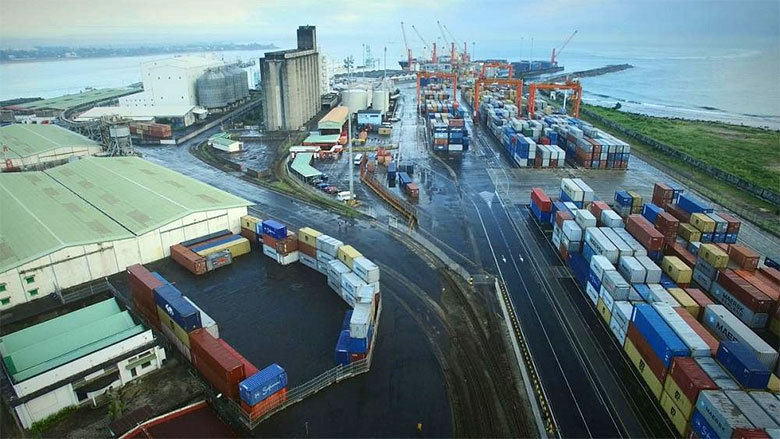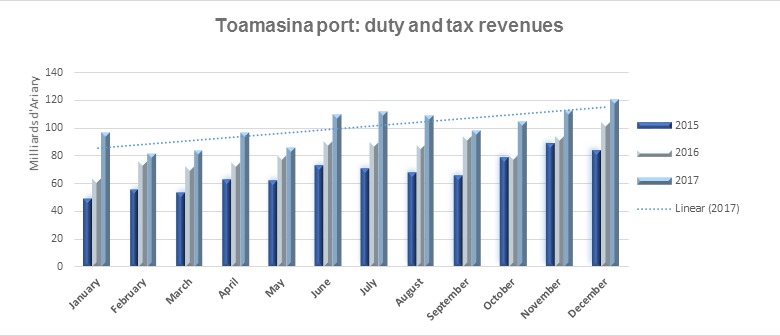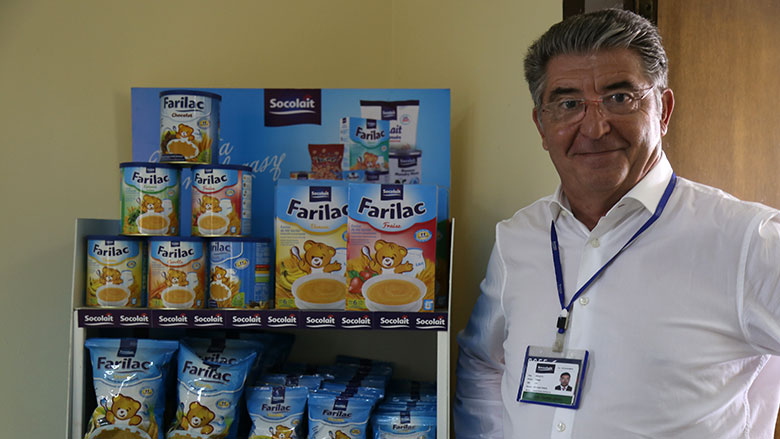ANTANANARIVO, May 8, 2018—At 7 a.m. sharp, Noro Miangola Razanamiandrisoa opens her office and gets ready for her day. Noro is a customs inspector at the port of Toamasina, the largest port in Madagascar, which handles 75% of the country’s freight operations. She is one of 10 customs inspectors working under a performance contract, an approach introduced by the Customs Department in 2016. The aim is to increase customs revenues, which already account for 44% of the country’s tax revenues. In May 2017, Noro was named the best-performing inspector of the year.
A feeling of contributing to her country’s recovery
“I took it as a personal and professional challenge. With the performance contract, I became more conscientious, more meticulous, and more attentive. Even though it’s very demanding—I arrive at my office at 7 a.m. and do not leave until 8 p.m., for example, and I often skip lunch—I decided to renew my contract because I find it very motivating to be able to tell myself that I am contributing to the overall effort to increase the country’s revenues,” she says.
Introduced after several months of consultations between customs inspectors and customs management, the performance contracts aim to improve inspectors’ individual efficiency in their daily work by setting clear objectives and measuring the results achieved. They also provide for incentives, sanctions, and rewards. The contract includes seven objectives, including speeding up customs clearance times, strengthening controls, and improving fraud detection.
“Since 2013, joint analysis of mirror statistics by the customs administration and the World Bank has enabled us to see the amount of tax revenue the administration was losing, while also improving risk analysis. The losses were in the neighborhood of 30%, an alarming figure that prompted us to take a closer look at the human resources dimension in the Customs Department,” explains Eric Narivony Rabenja, Director of Customs.
Results already being felt
In 2015, after identifying the reasons for the revenue loss, the Government decided to step up customs reforms with a view to boosting revenue and fighting fraud. The reforms have two priority objectives: expediting customs clearance procedures and improving human resources management. The port of Toamasina, which alone accounts for three-quarters of the country’s customs revenues, was chosen as a pilot site.
The introduction of performance contracts, the reduction of clearance times, and other elements of the reform have already yielded encouraging results. In the space of two years, from 2015 to 2017, the customs revenue collected at the port of Toamasina rose by almost half, a gain of more than 400 billion



